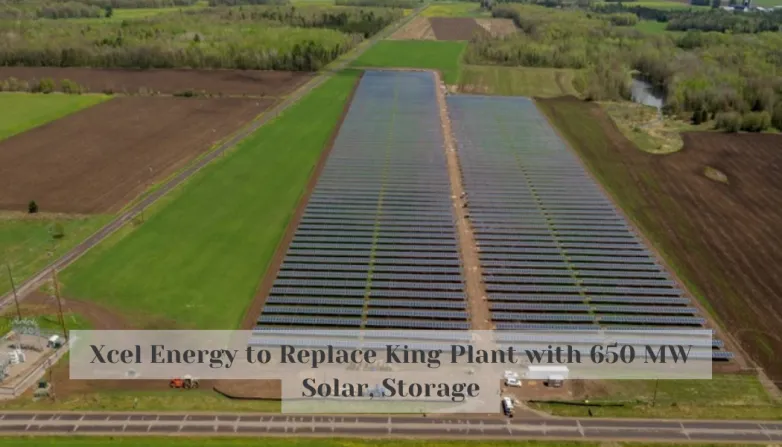Xcel Energy to Replace King Plant with 650 MW Solar, Storage
- Xcel Energy (NASDAQ:XEL) launches RFP to replace coal-fired power plant in Wisconsin with 650MW of solar-plus-storage projects to generate electricity for 135K homes and reduce CO2 emissions by 85% by 2030. Explore potential future uses of plant site after shuttering.

US utility Xcel Energy (NASDAQ:XEL) has launched a request for proposals (RFP) to replace a coal-fired power plant in Wisconsin with 650 MW of solar and solar-plus-storage projects. The new photovoltaic (PV) parks, planned to become operational between 2027 and 2029, will generate enough electricity to meet the demand of around 135,000 homes annually on average. Xcel estimates that when the solar farms go online, their operation will allow the utility to slash its carbon dioxide (CO2) emissions in the region by 85% by 2030 from 2005 levels. The Upper Midwest Energy Plan also sets a goal of providing 80% of the power supplied in the region to be carbon-free by the end of the decade, with all of its coal-fired plants due to be shuttered by the same year. Xcel is also exploring potential future uses of the King plant site after its retirement with state and local communities.
What Is Xcel Energy's Plan to Replace Coal-Fired Plant?
- Xcel Energy's plan to replace the coal-fired plant involves the construction of 650 MW of solar and solar-plus-storage projects.
- The new solar park will generate enough electricity to meet the demand of 135,000 homes annually.
- The solar parks are due to be operational between 2027 and 2029.
- Xcel estimates that this plan will lead to a 85% reduction in CO2 emissions in the region by 2030 compared to 2005.
- The Upper Midwest Energy Plan also sets a goal of supplying 80% of the power in the region with carbon-free energy by the end of the decade, with all coal-fired plants to be shuttered by that time.
- Xcel is also exploring potential future uses of the King plant site after its retirement with state and local communities.
Also read

